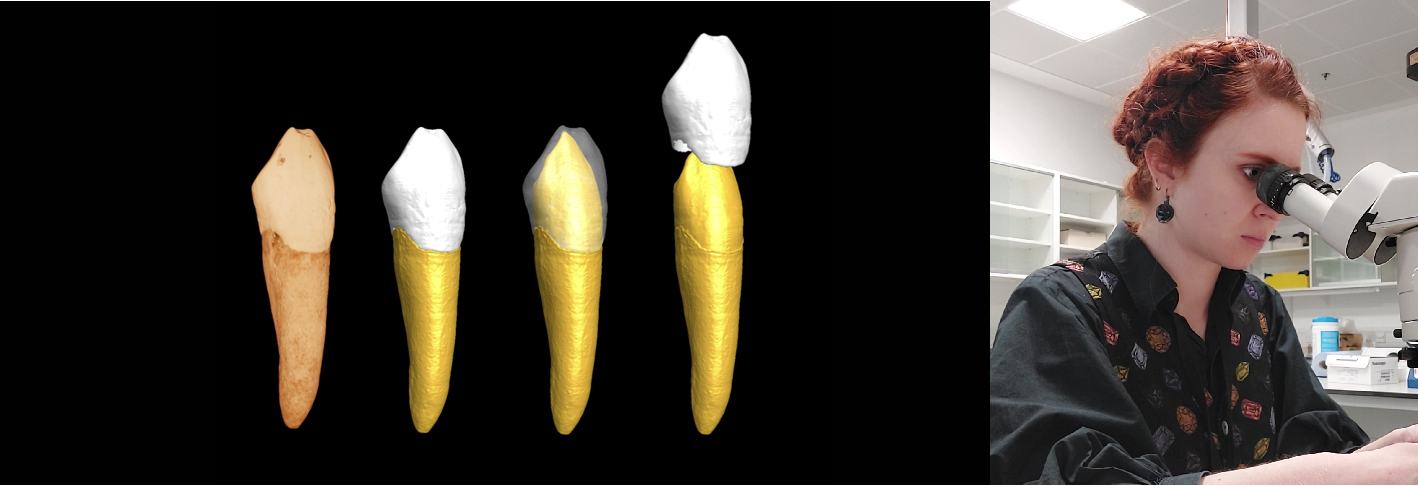Tooth image credit: Martina Trocchi & Alessia Nava, Sapienza University of Rome, Italy
Date: 11 November 2024, 15:00 - 16:00 CET
Speaker: Alex Rodzinka, Cranfield University/ISIS Neutron and Muon Source, UK
Title: Neutron imaging and neutron diffraction of ancient weaponry – preparing for the unexpected
Abstract
Neutron techniques, being completely non-destructive, are excellent for analysing archaeological material. They are best utilised, however, together with other techniques, which allow us to make the most of our beamtime. The more information can be obtained about the artefact, the better we can prepare for the neutron analysis, from using X-ray tomography to guide neutron diffraction, to making sure that the previous conservation of the object will not hinder the analysis.
Using her PhD research into ancient Iranian weaponry as an example, Alex will discuss which lab techniques can be helpful, what to look out for when analysing museum artefacts with neutrons, and how to prepare for the unexpected at a large-scale facility.
Bio
Alex Rodzinka is a PhD candidate at Cranfield University and ISIS Neutron and Muon Source. She has a BA in Egyptian Archaeology and an MSc in Archaeological Science: Technology in Materials from University College London. Her PhD research combines established laboratory techniques such as LA-ICP-MS and X-ray tomography with neutron diffraction and neutron tomography to investigate ancient Iranian weaponry from the Iron Age. While the main goal of the project was to understand ancient technology and innovation, it has become a forensic investigation as well, as many swords turned out to have been modified in modern times.
If you don’t receive a registration confirmation please check your spam mail.
During our events we sometimes take photographs and short film clips to profile our activities. Please let us know if you don’t want to be in any photos/films before we start the event. Some webinars are recorded to be used for educational purposes in the LINXS website.
By registering to our events you give your permission to LINXS, according to the General Data Protection Regulation (GDPR), to register your name and e-mail address to be used for the sole purpose of distributing newsletters and communications on LINXS activities.

